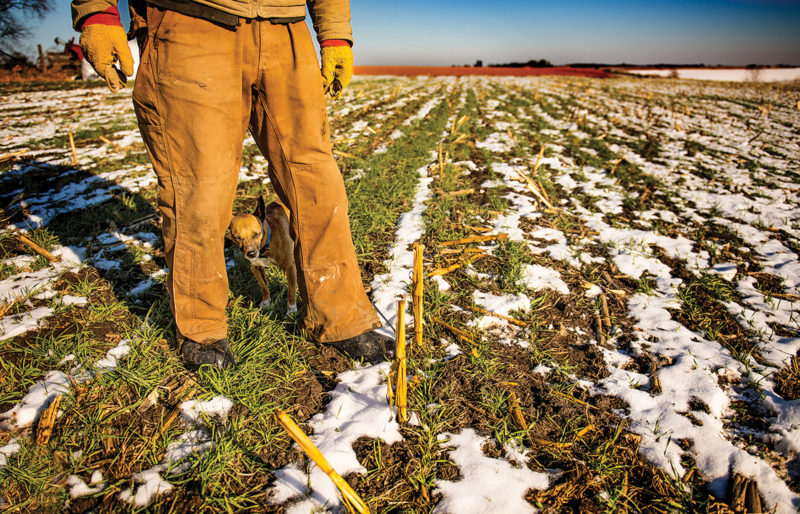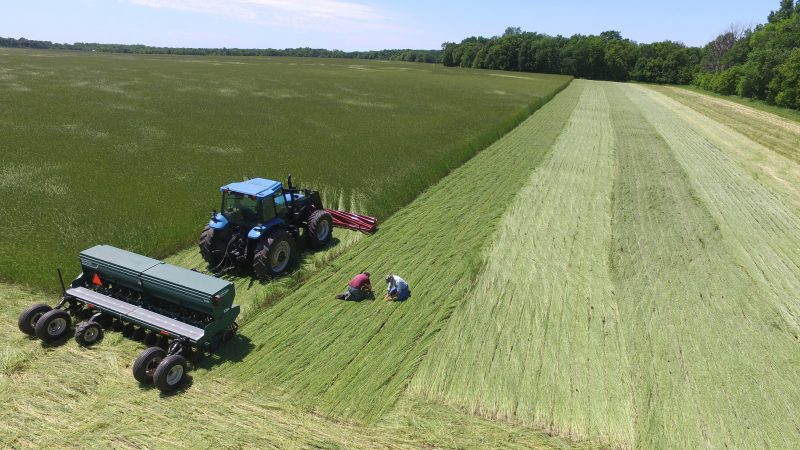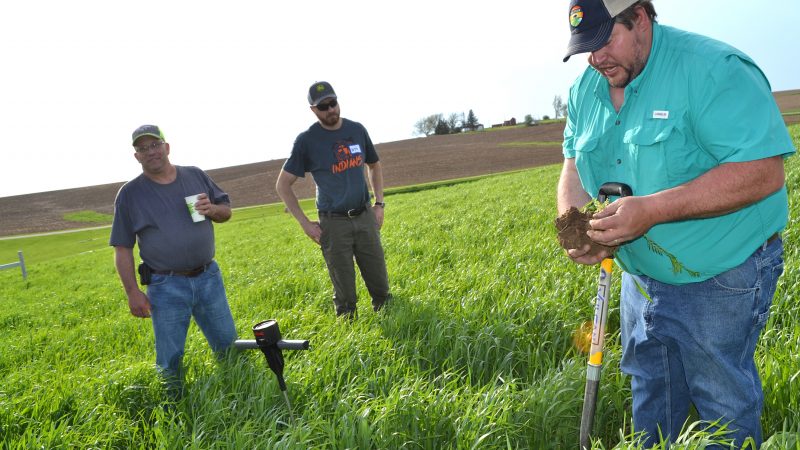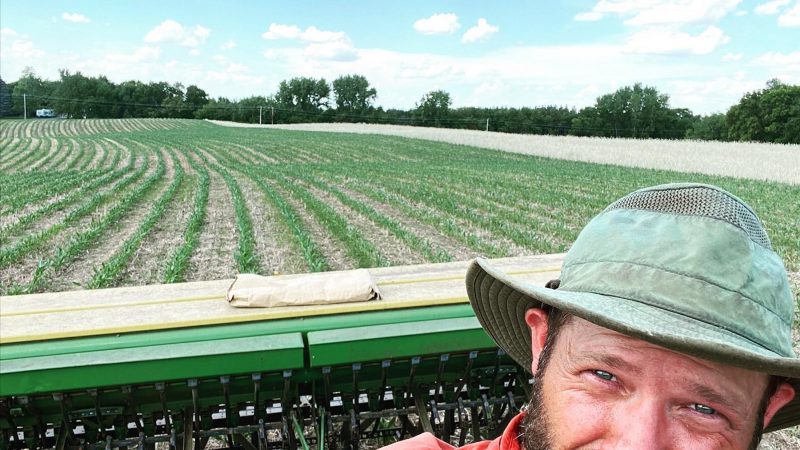 Cover crops play a key role in building soil health. They shield soil from erosion during heavy downpours, rebuild soil structure, improve water infiltration and aeration, and scavenge excess nutrients. They also feed the soil’s biological life and suppress disease and weeds.
Cover crops play a key role in building soil health. They shield soil from erosion during heavy downpours, rebuild soil structure, improve water infiltration and aeration, and scavenge excess nutrients. They also feed the soil’s biological life and suppress disease and weeds.
With all of these benefits comes a host of questions to consider when choosing and managing cover crops. For instance, what do you want the cover crop to accomplish? Which covers are best for scavenging nitrogen or for fixing “problem” spots in the field? What is the best way to terminate them in the spring? And how and when can cover crops be successfully established? Farmers are working through these critical questions and have provided the resources on this page to help guide other farmers. Check out the resources below to learn more about cover crops and how to best implement them on the farm.


